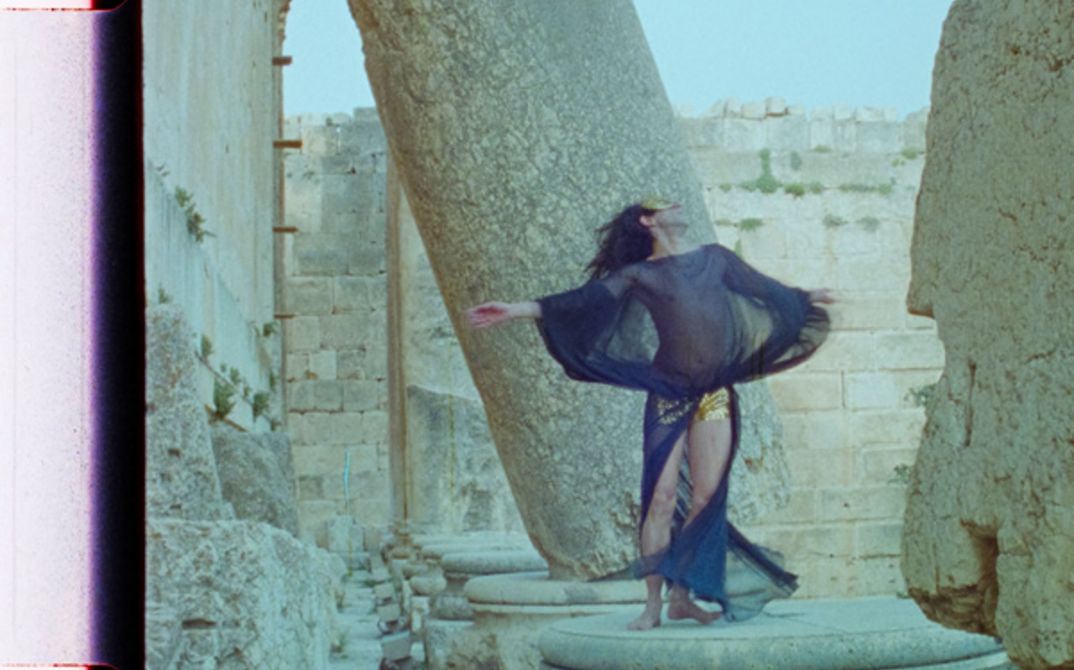48 min. Arabic, French, English.
The story of this film project revolves around the biggest film production studio in the Arab world, and its lost archive. Located on Charles Helou Boulevard in the east of Beirut, the remains of Studio Baalbeck, a white villa with open doors, broken windows, and a garden full of wild plants and pine trees, appear like a lifeless place. But even though the once thriving production house, established in 1962, fell victim to the Lebanese civil war (1975–1990), it has nevertheless left behind a treasure of an archive of voice recordings and films that still are famous throughout the entire Arab region, spanning productions from Erbil to Amman, and from Damascus to Cairo. Negligence by the Lebanese authorities has led to mold growing on parts of this archive inside the damp underground warehouses.
Bayna Hayakel Studio Baalbeck shows the ruination of film heritage in Lebanon, navigated through the country’s cinematic heydays in the late 1960s and early 1970s – a period that witnessed a rise of Egyptian producers and directors moving to Lebanon to make films partly due to Nasser’s nationalization of Egyptian cinema.
Siska was one of the pioneers in the Beirut graffiti scene, and as a former member of the hip-hop group kitaa Beyroute, he produced music and performed live on stage for more then seven years. Since finishing his music carrier, he has collaborated on many experimental film productions and contemporary art productions where he has developed new approaches to his practice as a multidisciplinary artist.
